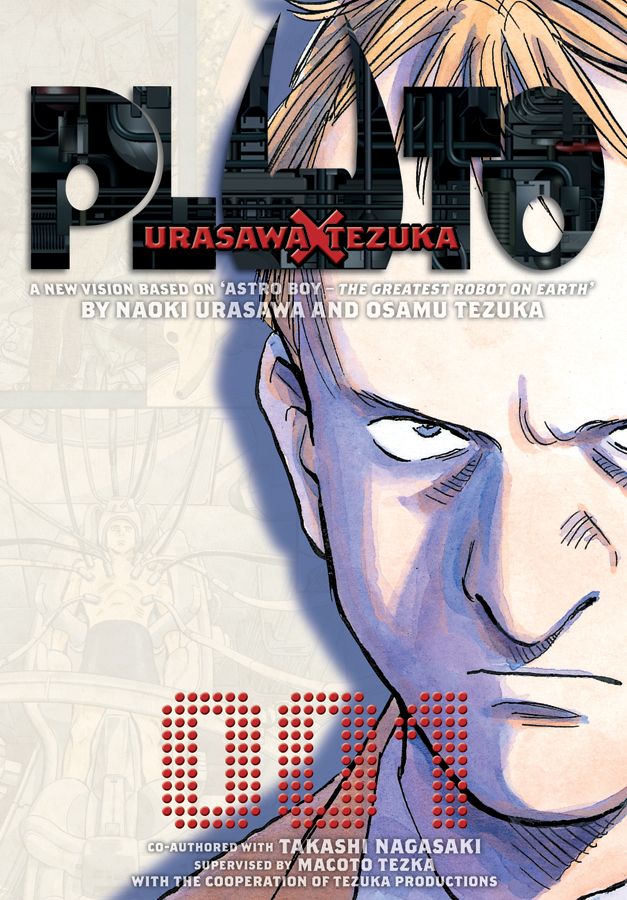I'll be the first to admit that while I've read and enjoyed some "Astro Boy" stories over the years, I was a little unsure on just why I should care about Naoki Urasawa's take on Osamu Tezuka's story, "The Greatest Robot on Earth." Tezuka's original "Astro Boy" story dealt with how someone or something was hunting down the seven greatest robots of the world and killing them; as Astro Boy was one of those seven robots, of course, it behooved him to figure out just what was happening. I read it years ago in a collection from Dark Horse, and then promptly forgot about it.
While I thought that original story was just so-so, from what I can gather the original "The Greatest Robot on Earth" story is to Japanese fans, as how 1970s "X-Men" fans feel about "The Dark Phoenix Saga." It's a fairly big deal in Japan, and so I figured that was why everyone was going so crazy over Urasawa's version, titled "Pluto." People were reliving their memories of the old series, and that was the excitement they found in the comic.
Oh, how very wrong I was.
Urasawa's "Pluto" has turned the original story into a film noir murder mystery, with the robot investigator Gesicht trying to discover what has killed some of the greatest robots on the planet. If that's not enough, there's also the question of if the killer is a robot, and if so, how it was possible for a robot to also slay humans. Urasawa's version is a very stylized, slick story; I love that he's not only turned Tezuka's story into an actual mystery, but one where you actually get to know the different victims and learn their history. Several early chapters bring us to the location of one of the murders, where we first learn all about the robot. I never thought reading about how a robotic killing machine decided to leave war and become a butler in order to try and understand music would be interesting, but at the end of those chapters I felt genuinely sad. At first I thought it was just because that side-story was over, and I wanted to read more about the lonely composer and his butler. It was a minute later that it suddenly hit me that no, I was sad because I'd actually grown to care about a robot with six arms named North #2.
That's what's so great about "Pluto: Urasawa x Tezuka" and why I think it serves that particular subtitle. It's taking selected elements from Tezuka's story and then combining it with the best things about Urasawa. Don't get me wrong, I have an entire bookshelf full of manga by Tezuka and I think he's amazing. Most "Astro Boy" stories felt like disposable media to me, though, and "Pluto" is so much more than that. Reading "Pluto," all I could think was that if they'd turned this into the "I, Robot" movie (let's face it, the movie had nothing to do with Isaac Asimov's book), we would have ended up with something so much better than the actual film. Look no further for a story about robots somehow breaking their programming and being able to kill people; this is the winner.
Urasawa's thriller "Monster" was such a strong hit in both Japan and North America, with its combination of action, adventure, ethical dilemmas, and truly evil characters, that I figured any new book from Urasawa would be worth checking out. Now that I've read the first volume of "Pluto" I'm changing "worth checking out" to "absolutely must be read." Viz is about to also start releasing Urasawa's "20th Century Boys" manga in English, and now I know what I'll need to buy, pronto. If "Pluto" doesn't rack up award nominations next year, I will be genuinely perplexed. Remember my prediction this time next year, because "Pluto" is just that good.

